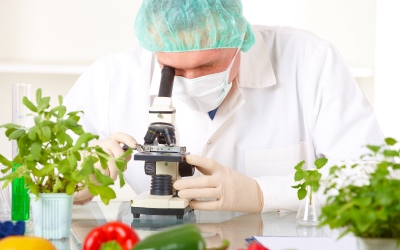Population Boom: If GM Foods Aren’t the Answer, What Is?
Last week, environment secretary Owen Paterson made a bold speech in defence of GM foods. He noted that GM foods could bring benefits to the wellbeing of millions of people, as GM foods mean less pesticide, more nature reserves and, most importantly of all, life-changing benefits for generations of children with vitamin A deficiency. So why do we remain so skeptical about the science and big business involvement behind GM foods, and how they impact our environmental wellness?
Last year, the stranglehold of regulation caused Monsanto and the German firm BASF to retreat from Europe. While draft legislation has been on the table for the past three years that would allow individual countries to make their own decisions on GM crops, few governments want to challenge citizens’ skepticism, as Paterson has so boldly done. Last week, he commented that GM is on a par with better animal husbandry and selective plant breeding, in that it’s only a step in the long march of agricultural improvement – but is he right?
There is a monumental difference between exploiting a natural resistance to a disease, and introducing an alien gene to provide that protection. This is probably what makes you suspicious of the science of GM foods and the people promoting it. It took ten years for modified “golden rice” (which has added beta-carotene to tackle vitamin A deficiency) to be given authorisation – we just don’t trust GM foods. However, this caution means we need to be serious about the consequences of the population explosion. Over the next 40 years, it is estimated that we will need to increase our food production by 60%. If GM foods aren’t the answer, then what is?
While GM may have a role to play in increasing our food production over the coming years, it’s more likely that more traditional science, using genetics, will be part of the answer. However, campaigners at the G8 argued last week that the bigger answers lie in asking bigger questions about the politics. Agricultural production doubled in Europe in the 40 years after 1965, which proves that it’s not all down to science. Genetic engineering is no substitute for a global, sustainable agriculture based on education, investment in roads, storage and markets, access to improved seed and a political economy that prioritised food production.


Comments are closed.